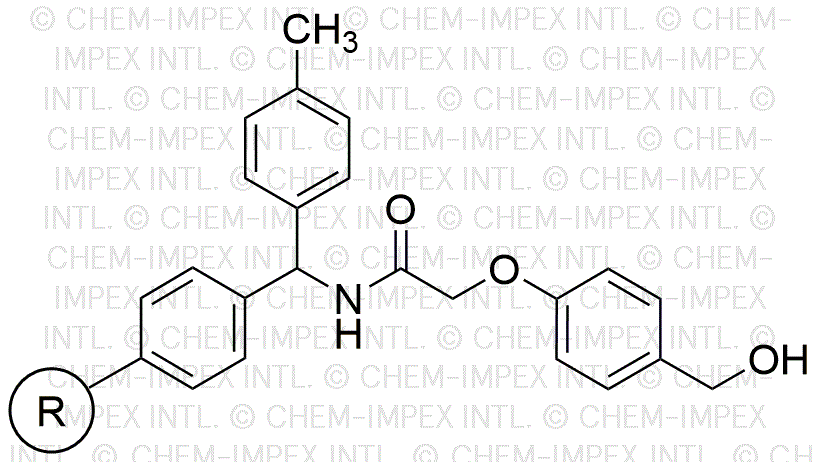HMPA-MBHA resin (0.3 - 0.6 mmol/g, 200 - 400 mesh) is widely utilized in research focused on:
- Peptide Synthesis: This resin is a key component in solid-phase peptide synthesis, allowing for the efficient assembly of peptides. Its high loading capacity ensures that researchers can produce peptides in a cost-effective manner.
- Drug Discovery: In pharmaceutical research, HMPA-MBHA resin facilitates the development of new drugs by enabling the rapid synthesis of compound libraries, which can be screened for biological activity.
- Bioconjugation: The resin is used in bioconjugation processes, where it helps in attaching biomolecules to surfaces or other molecules, enhancing the effectiveness of diagnostic tools and therapeutic agents.
- Analytical Chemistry: It serves as a support material in various chromatographic techniques, improving the separation and analysis of complex mixtures, which is crucial for quality control in manufacturing.
- Custom Resin Development: Researchers can modify the resin for specific applications, allowing for tailored solutions in various fields such as biotechnology and materials science, thus providing flexibility in experimental design.
General Information
Properties
Safety and Regulations
Applications
HMPA-MBHA resin (0.3 - 0.6 mmol/g, 200 - 400 mesh) is widely utilized in research focused on:
- Peptide Synthesis: This resin is a key component in solid-phase peptide synthesis, allowing for the efficient assembly of peptides. Its high loading capacity ensures that researchers can produce peptides in a cost-effective manner.
- Drug Discovery: In pharmaceutical research, HMPA-MBHA resin facilitates the development of new drugs by enabling the rapid synthesis of compound libraries, which can be screened for biological activity.
- Bioconjugation: The resin is used in bioconjugation processes, where it helps in attaching biomolecules to surfaces or other molecules, enhancing the effectiveness of diagnostic tools and therapeutic agents.
- Analytical Chemistry: It serves as a support material in various chromatographic techniques, improving the separation and analysis of complex mixtures, which is crucial for quality control in manufacturing.
- Custom Resin Development: Researchers can modify the resin for specific applications, allowing for tailored solutions in various fields such as biotechnology and materials science, thus providing flexibility in experimental design.
Documents
Safety Data Sheets (SDS)
The SDS provides comprehensive safety information on handling, storage, and disposal of the product.
Product Specification (PS)
The PS provides a comprehensive breakdown of the product’s properties, including chemical composition, physical state, purity, and storage requirements. It also details acceptable quality ranges and the product's intended applications.
Certificates of Analysis (COA)
Search for Certificates of Analysis (COA) by entering the products Lot Number. Lot and Batch Numbers can be found on a product’s label following the words ‘Lot’ or ‘Batch’.
*Catalog Number
*Lot Number
Certificates Of Origin (COO)
This COO confirms the country where the product was manufactured, and also details the materials and components used in it and whether it is derived from natural, synthetic, or other specific sources. This certificate may be required for customs, trade, and regulatory compliance.
*Catalog Number
*Lot Number
Safety Data Sheets (SDS)
The SDS provides comprehensive safety information on handling, storage, and disposal of the product.
DownloadProduct Specification (PS)
The PS provides a comprehensive breakdown of the product’s properties, including chemical composition, physical state, purity, and storage requirements. It also details acceptable quality ranges and the product's intended applications.
DownloadCertificates of Analysis (COA)
Search for Certificates of Analysis (COA) by entering the products Lot Number. Lot and Batch Numbers can be found on a product’s label following the words ‘Lot’ or ‘Batch’.
*Catalog Number
*Lot Number
Certificates Of Origin (COO)
This COO confirms the country where the product was manufactured, and also details the materials and components used in it and whether it is derived from natural, synthetic, or other specific sources. This certificate may be required for customs, trade, and regulatory compliance.


